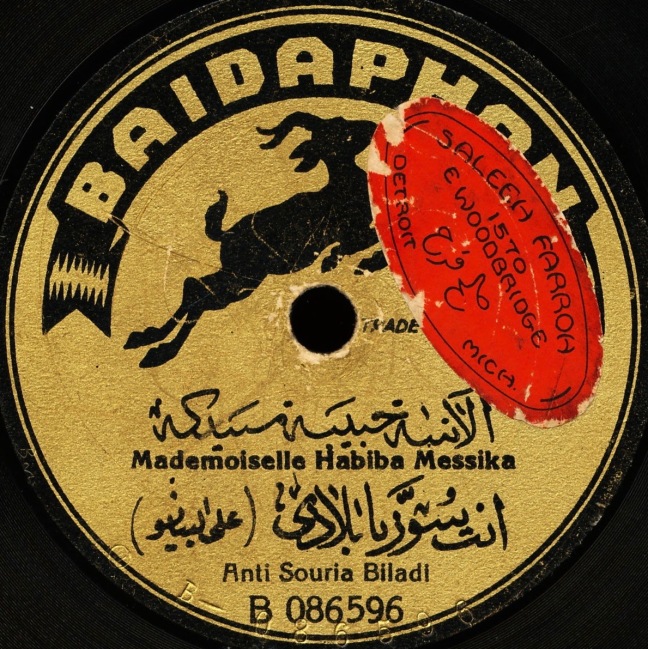This is not a complete history of Raoul Journo, one of the great Tunisian vocalists of the interwar period and mid-twentieth century, but it should give us at least a sense of his earliest years and recordings. Raoul was born in 1911 to Joseph Journo and Zouïaza Journo (née Chiche) in a working-class neighborhood in Tunis (on rue Tronja to be exact). The Journos, including their five children, lived in a home shared with six other families. The courtyard was to be Raoul’s first stage.
The young Journo began singing at an early age. He learned much from his mother. The same was true of the phonograph, employed at nearby cafés, which attracted him and other customers. We need add that his passion for music and his adroitness for it was also incubated in the traditional Jewish school he attended (kutab) and the synagogues he frequented, where some of the standout musicians and recording artists of his era gathered to chant. Perhaps more surprisingly, it was at the Alliance israélite universelle where he began to develop and then expand a repertoire. His music teacher there was none other than Gaston Bsiri, who twice weekly taught him Tunisian, Egyptian, and Tripolitanian songs. Bsiri soon gave the promising upstart private lessons at his home.
By the age of fifteen, when he left school, Journo had launched an amateur career with a small ensemble. Within a couple of years, he also began acting and did so alongside the likes of Habiba Messika and Dalila Taliana.
His big break occurred in the early 1930s when the pianist Messaoud Habib, who was also Pathé’s artistic director in country, arranged for a recording session at the Hotel Moderne on rue de Constantine. What happened to that first record is unclear. But that he had talent was obvious. Around 1932, he headed to Paris where he began recording for Polyphon. He would record for the label regularly until the outbreak of the Second World War. In the meantime, his discs were played with stunning frequency on Radio Tunis and Radio Alger and were sold from Tunisia to Morocco in the thousands. He had become a star.
“Habbit ana habbit” (I loved, I loved) comes from a 1937 recording session with Polyphon (re-released from the masters postwar by Philips). If nothing else, his powerful and yet supple voice stands out here. So does a considerable influence from Egypt.
Notes
Label: Philips (originally released on Polyphon)
Title: Habbit ana habbit [حبيت انا حبيت]
Artist: Raoul Journo
Issue Number: 46.016
Matrix Number: 3269 HPP; 3270 HPP
Date of Pressing: 1937



